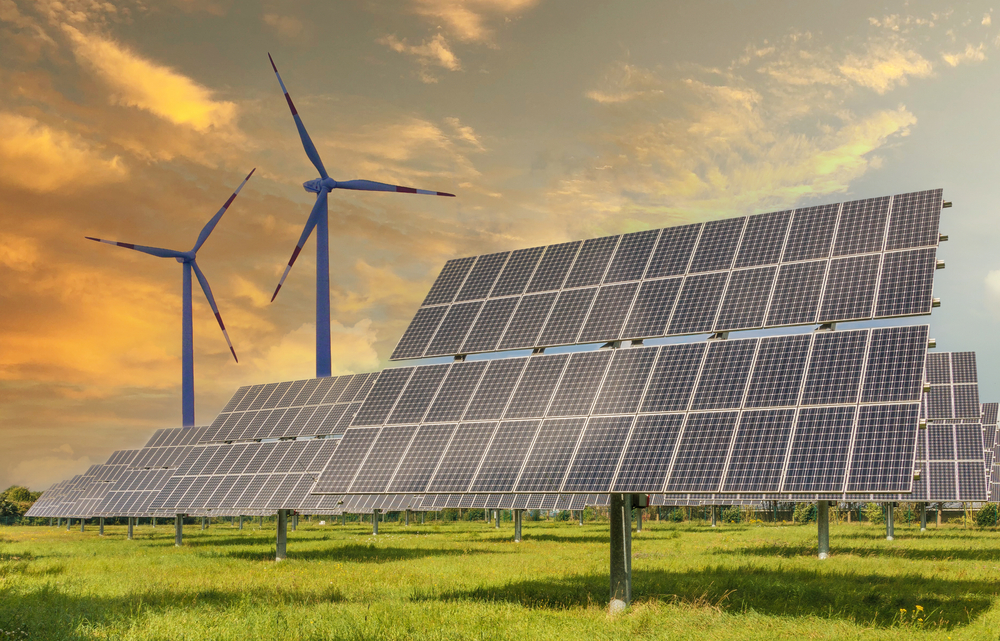Arab countries have been increasing their investments in renewable energy projects, including solar energy and waste-to-energy conversion. Such projects have become part of the countries’ future economic and development plans, especially given the great potential to switch to clean energy in some countries. The repercussions of the Russian military intervention in Ukraine, particularly the rise in global oil prices, are likely to augment this transition to the use of renewable energy in the region.
For example, the assistant undersecretary for the electricity, water and future energy sector at the UAE Ministry of Energy and Infrastructure, engineer Yousef Al Ali confirmed during the Climate Forum, on the sidelines of the World Future Energy Summit, which was held in Abu Dhabi from 17 to 19 January 2022, that the UAE seeks to generate 20 gigawatts of solar energy by 2030. He added that the operation of the Barakah Nuclear Power Plant at full capacity by 2024 will provide 25% of the country’s electricity needs. Similarly, Saudi Arabia has pledged to generate 50% of its energy from renewable sources in 2030, while Morocco, a regional leader in the field of renewable energy, plans to produce more than half of its electricity needs from renewable sources by 2050.
Jordan has achieved remarkable success in its renewable energy projects, with the government focusing on solar energy. This comes following the opening of the Shams Ma’an solar power plant in 2016, the second largest solar power plant in the region. A plant was also installed at the Zaatari refugee camp to provide electricity to 80,000 Syrian refugees. Governments in Iraq, Algeria, Egypt, Jordan, and Tunisia have launched similar solar energy projects, with some still in the development or initial production stages.
The impact of the war in Ukraine
Despite the achievements made by many Arab countries in the transition to renewable energy over the past years, these efforts are likely to be impacted by the Russian-Ukrainian war, the most important repercussions include:
- Rising costs of renewable energy projects: Russian military operations have caused logistical and supply issues for renewable energy projects in some Arab countries, as Russian and Ukrainian companies play an important role in supplying components used in renewable energy systems, such as steel, aluminum, cobalt, nickel, neon, and palladium. This will lead to an increase in the cost of renewable energy projects that were already facing supply chain pressures and increases in raw material prices due to the COVID-19 pandemic. The higher transportation costs caused by oil price hikes as a result of the Ukraine war, is expected to further raise costs.
- Larger opportunities for exporting oil and gas from the region: As Europe tries to reduce, and possibly phase out, dependence on Russian oil and gas, demand for Arab oil and gas is likely to rise. Therefore, oil and gas producing countries in the region may seek to export more oil and gas to Europe and turn to renewable energy projects to generate electricity. Rising global oil prices will provide oil-producing countries with an incentive to export in large quantities, rather than relying on these resources to produce generate local subsidized electric power. Furthermore, oil-importing Arab countries, being negatively impacted by the high prices of oil, have the incentive to invest in accelerating renewable energy projects to reduce dependence on hydrocarbons in power generation.
- New partnerships for hydrogen production: Germany’s search for alternatives to Russian energy sources has led German companies have signed several agreements with the Abu Dhabi National Oil Company (ADNOC) with the aim of accelerating and strengthening cooperation in the field of clean hydrogen. An agreement was signed during German Minister of Economic Affairs and Climate Protection Robert Habeck’s visit to the UAE on March 21st to discuss long-term energy supplies. This visit confirmed the solid partnership in the energy sector between the two countries, and the efforts of the UAE-German ministerial working group, which was established in November 2021, to support cooperation in the field of hydrogen. In the same context, German research organization Fraunhofer Society and the UAE Ministry of Energy and Infrastructure agreed to enhance the exchange of experiences in the field of sustainable energy and applied hydrogen technology.
Continued Transition
Despite logistical and cost challenges to renewable energy projects in the Arab World, Arab countries dependent on imported oil and gas are likely to continue the effort to transition to renewable energy in the long term, as they view this as an opportunity for economic growth and job creation, including the possibility of expanding the industrial sector by to manufacturing necessary components locally.


